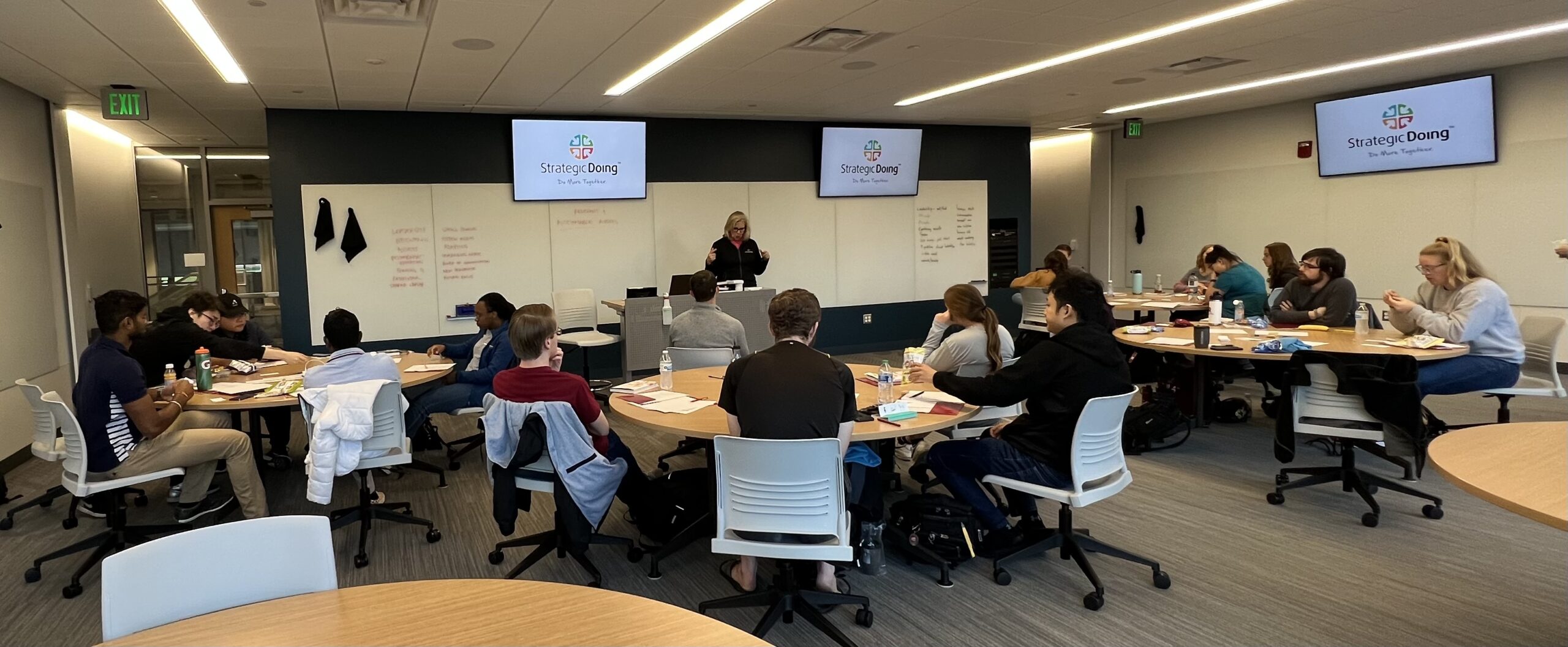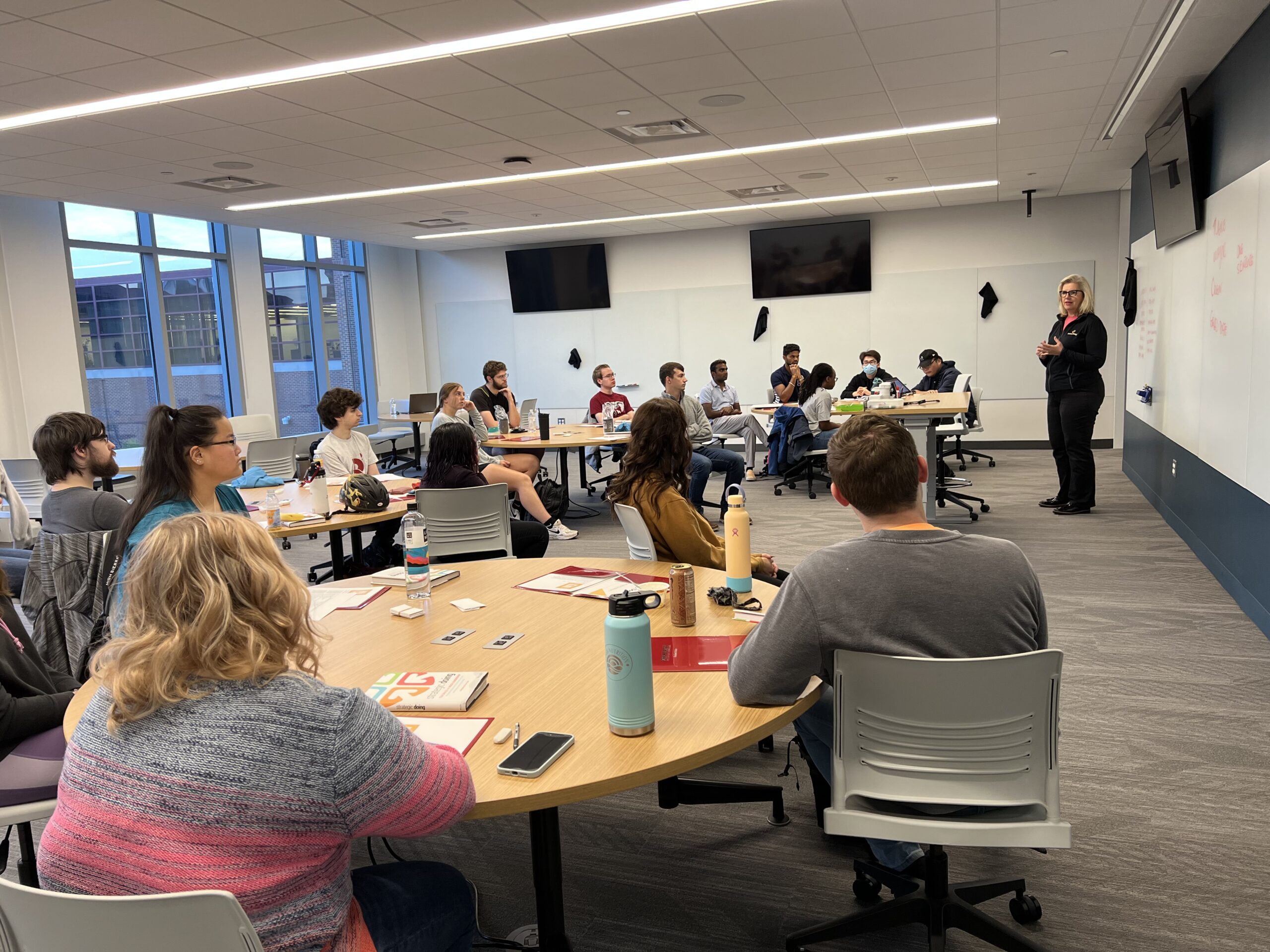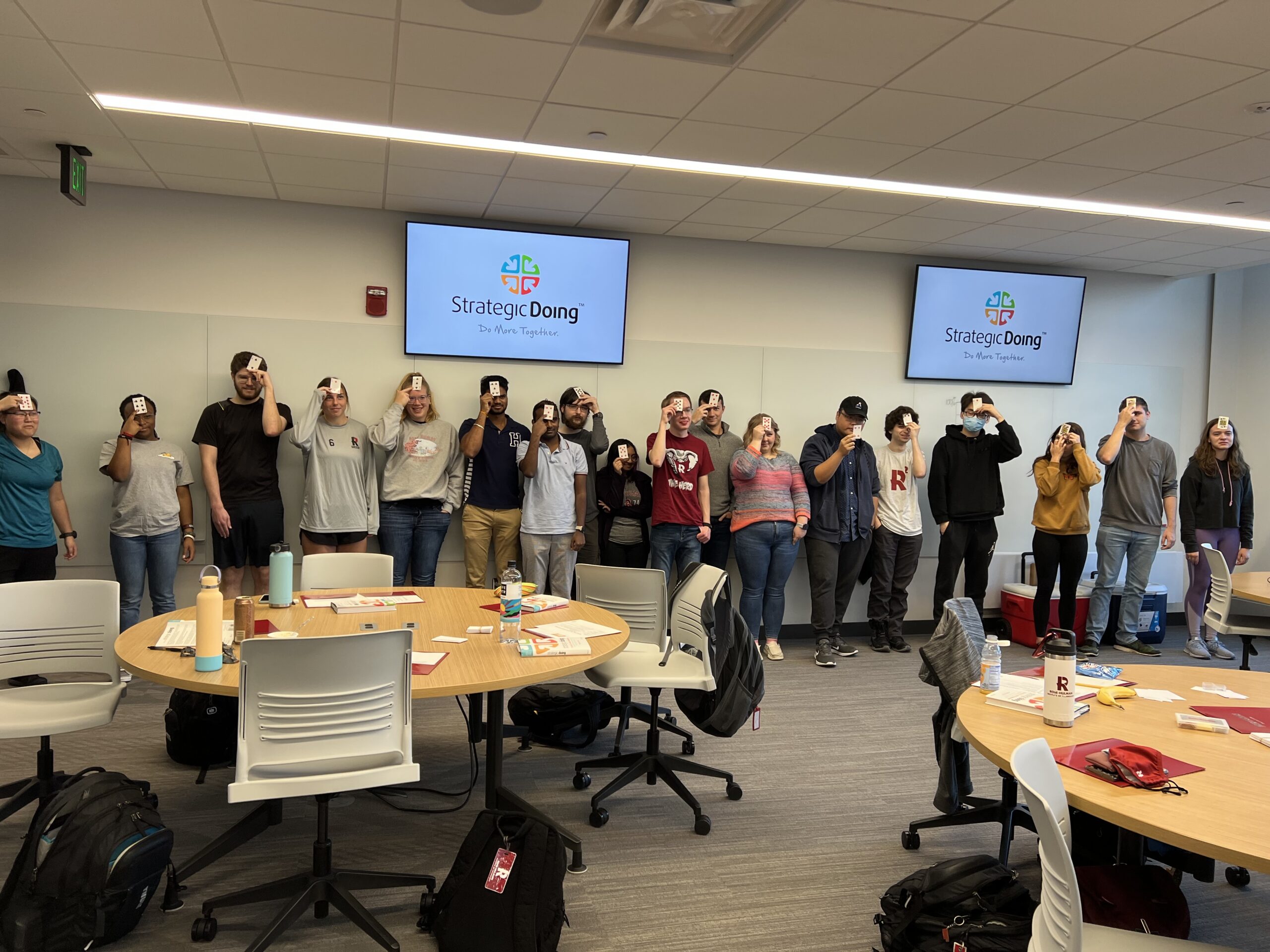
Teaching Leadership and Collaboration at the College Level
Want to teach your students the skills of collaboration, teamwork, and problem-solving?
At the University of North Alabama, faculty approached the Agile Strategy Lab to see how we could teach collaboration, teamwork, and networking to their students. From that work came two courses: one for graduate (MBA) students; another for undergraduates. Both have had very positive feedback from both faculty and students, and both were designed to be made available to other universities and colleges.

Graduate: Leading Complex Collaborations Course (3 credit hours)
This course, designed to meet Quality Matters standards, teaches emerging strategy practices. The student will be able to understand and implement the skills of agile leadership in teams or organizations facing complex challenges and will be able to design effective collaboration sessions. These same tools and approaches are being used in a rapidly growing number of organizations across the globe. Students will learn a set of practical skills to help them become agile leaders, providing them with a knowledge of emerging management and leadership skills. The course is delivered in a hybrid fashion: the first part is "asynchronous" – taught over 7+ weeks, with videos, quizzes, and an electronic workbook with assignments for each module. Assignments are designed to help to the student reflect on the content as well as put the skills taught into practice. The second part of the course includes four live two-hour sessions over 2+ weeks. Students in the course have reported they have been able to implement the skills immediately at their work or in other classes.
Undergraduate: Collaboration and Team Problem-solving Course (1 credit hour)
This course, also designed to meet Quality Matters standards, is made up of 8 modules designed to be taught in person in eight 75-minute sessions (for example, 2 sessions per week over 4 weeks). The course is designed for undergraduate students who will be engagedin team-based problem solving and need for build effective collaborations to complete their work. The skills gained in this course will add to their ability to succeed as they advance through their studies and into the workplace. Each session has experiential exercises followed by discussion questions. Students in the course report they now have new tools to get a team to work together to complete a project and know how to move from an idea to action.
Doctoral: Emerging Methodologies for Organizations (1 credit hour)
This course exposes experienced business professionals to existing and emerging strategic frameworks and methodologies to address adaptive problems intrinsic to business strategy. Students encounter and engage in tenants of agile strategy such as framing appreciative questions, asset identification, leveraging assets to achieve strategic outcomes, and selecting appropriate projects to attain strategic objectives. Taught in two sessions during weekend residency.
Senior seminar (1 credit hour):
An additional higher education course was a senior seminar at Rose-Hulman Institute of Technology. This course was a one credit course that included six weeks of online work (reading and discussion boards) followed by an in-person six hour experience. The live session incorporated a number of experiential exercises with extensive discussion afterwards. Following the course, the program director reported: “What a great day of engagement and learning. Janyce and Rena moved our students through the concepts of Strategic Doing in a manner that resonated with them. One student remarked, 'The in-person seminar, online materials, and book worked well together to teach us the tenets and reasons behind creating Strategic Doing, a concept that applies to our current roles [students] and future as engineering management professionals.' The experience was a great compliment to their traditional engineering education.”


Interested to begin using the skills of Strategic Doing in your Higher Education Courses?
You can use the contact us button to connect and begin the journey.




